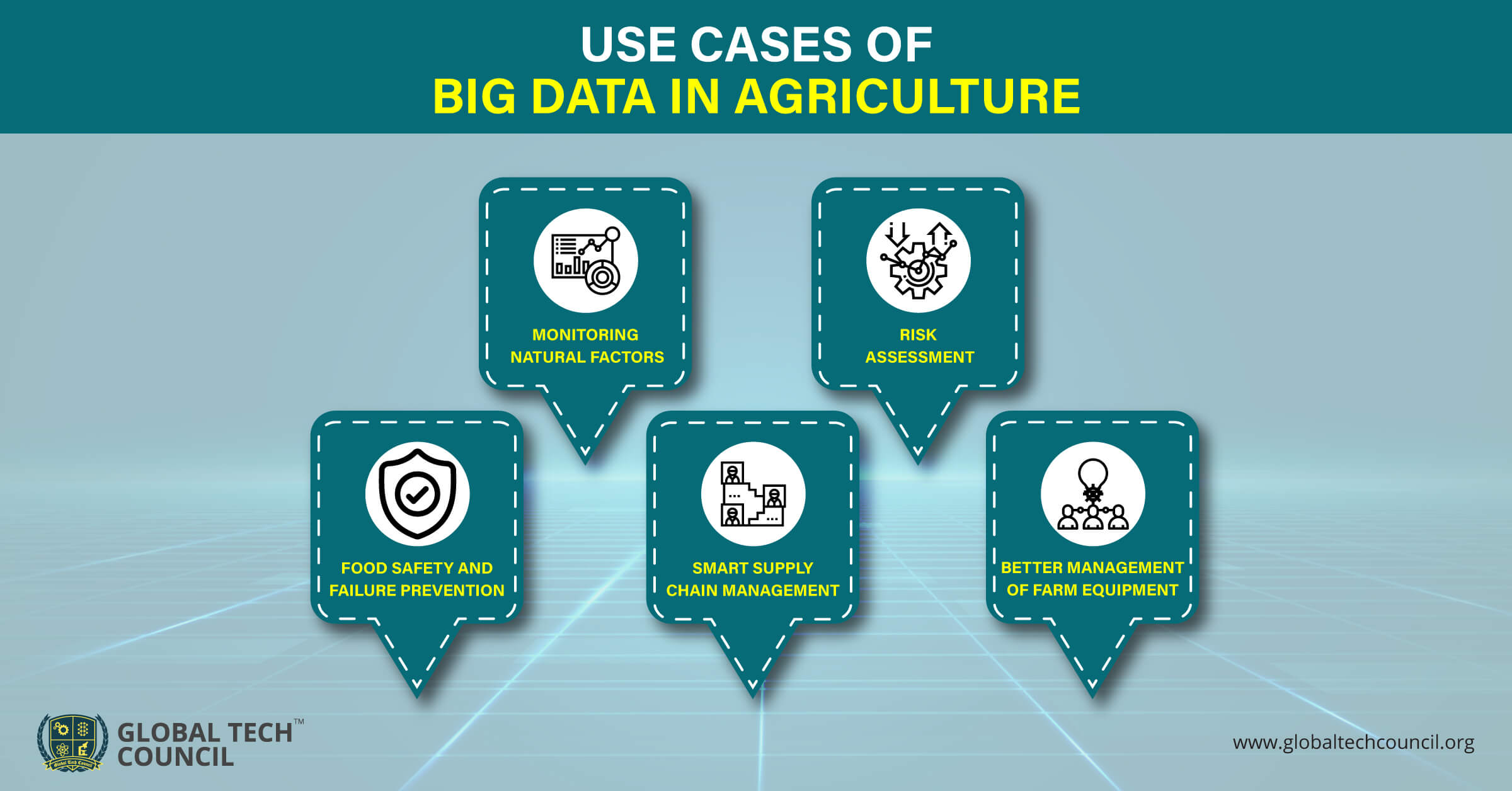Big data seems like a solution for most farming problems. This article will help you understand how big data is being used in agriculture and the value of big data training courses.
Learning Of Blog
- Introduction
- Role of Big Data in Agriculture
- Benefits of Big Data in Agriculture
- Use Cases of Big Data in Agriculture
- Conclusion
Introduction
Technology has revolutionized the traditional farming methods to improve productivity. From the data collected by satellites to mobile phones, farmers leverage technology for better planning of cop production.
However, the farming land is rapidly decreasing because of urbanization, making it necessary for farmers to produce more, using less land. To fight this, the experts are seeking help from new technologies such as big data, IoT, and the like. Now is the time to get a data analytics certification if you don’t have one already.
The primary task is to collect data from IoT devices such as monitoring devices, soil sensors, drones, etc. This data will then be analyzed to help farmers make smarter decisions and up their production game. This is how big data can be used to produce large amounts of food and feed the growing population.
Role of Big Data in Agriculture
Most people would wonder how any digital technology like big data can help farmers? According to McKinsey & Company, there is a global loss of almost $940 billion as about one-third of the food produced is wasted every year.
Well-planned use of any technology can make life easier. Going by the same logic, big data experts suggest that farming processes can be made simpler and better with the precise use of big data. Farmers can save a lot of money and time if they are already equipped with the required information. Big data empowers farmers and agriculturalists with information such as the best seed type, future opportunities, most effective methods for maximizing crop production, and the like. For example, farmers can study the rainfall patterns of the last few years to avoid crop failures.
Benefits of Big Data in Agriculture
Almost five million people die of hunger in Africa every year. Similar is the problem with other developing and underdeveloped nations. A practical approach needs to be employed to deal with this problem than regular digital technologies. This is where big data can help with real-time data analytics and automated processing. Farmers can now be more precise in the practices they follow, improve crop production, and minimize wastage. Following are the benefits of big data in agriculture:
- Collecting data from satellites and drones to predict weather patterns.
- Using the right seeds for different soil types and land fertility levels.
- Keeping an eye on supply chains
- Reducing the chances of crop failure and diseases from relevant data.
Use Cases of Big Data in Agriculture
Big data has plenty of use cases within farming; we’ve just scratched the surface. Its ability to analyze data in real-time, predict weather patterns, and suggest the best practices can revolutionize the farming industry. Let’s take a look at some of them:
- Monitoring Natural Factors – The output of the farmers’ efforts often depends upon uncontrollable factors such as pests and extreme weather conditions. For example, unexpected hailstorms can spoil the whole crop, leaving farmers in despair.
It was not possible to predict such events before the introduction of big data. When the system is fed with past and present data, it can predict such incidents. It is useful in planning and boosting future yields. Just imagine the money farmers and supply chains will save if they are aware of a pest attack or hailstorm.
- Risk Assessment – In the corporate world, teams are equipped with data and detailed reports to identify and assess the related risks involved in the business. However, such has never been the case in the farming industry.
With big data, farmers can know the outcome of almost every process or decision. The system will automatically predict the risks involved, and the farmers can combine such analyses with their experience to utilize their resources in the best possible way.
- Food Safety and Failure Prevention – Farmers across suffer from incidents of pests and microbes every year. Perhaps early detection can help reduce their losses or prevent crop failure. Data with insights like humidity levels, chemicals, temperature, etc. will give farmers an idea of crop health.
- Smart Supply Chain Management – Precision of big data can have a huge impact on the agricultural supply chain. For example, farmers can get real-time information about their products, whereas distributors and retailers can study the market trends to improve their offerings.
- Better Management of Farm Equipment – Last but not least, the offerings of big data in managing the farm equipment cannot go unnoticed. OEMs can fit their equipment with sensors to collect data and help farmers manage everything smoothly and reduce down-time.
For example, John Deere has already integrated its equipment with sensors that provide farmers with fuel or service alerts. This helps reduce the downtime as farmers can plan everything in advance.
As a result, people with a data analytics certification are in high demand and have more chances to get an interview call over other candidates.
Conclusion
That’s what big data has in store for the agriculture industry. It helps farmers make better and smarter decisions; revamping today’s agricultural economy. Although the major focus is on improving processes in order to make more profits, an added advantage is that it will give food to billions of people around the world.


